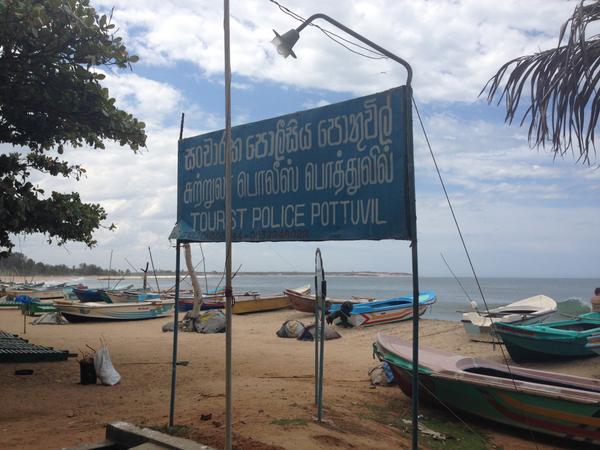Sri Lanka and the Maldives have never been more popular for beach-lovers, backpackers or Brits: over 144,000 British tourists visited Sri Lanka last year, and almost 16,000 holidayed in the Maldives in February alone this year. Around five thousand British Nationals have set down permanent or semi-permanent roots here too. For the most part, travellers visit the ancient cities, follow the tea trails and soak up the sun, sea and sand without any trouble. But where do British Nationals turn when trouble strikes?
The Consular section of the British High Commission in Colombo provides support to vulnerable British Nationals in Sri Lanka and Maldives. They handle a wide variety of casework from arrests and Emergency Travel Documents to deaths and domestic violence. Sadly, around eight British tourists a year drown in Sri Lankan or Maldivian waters. Sexual assault cases have also increased in recent years. And too many tourists simply run out of money, or leave their suitcases somewhere unsafe. I’m constantly impressed by the way my consular colleagues manage complex emotions and logistics, providing sage advice to those in sometimes dreadful trouble. We also rely heavily on our local partners, including the Tourist Police, the medical services and refuges run by Women in Need and the Centre for Policy and Religion, which is why we regularly provide funding and training to them.
For long-term residents, it’s mostly about property disputes or documentation. More and more of our document processing is moving online, freeing up everyone’s time. So if you want to renew your passport, you no longer need to come to the High Commission, but can go direct to Apply for, renew or update a UK passport online. Her Majesty’s Passport Office’s ambition is to reduce the processing time for routine renewals of British passports from six weeks to a month. In an emergency, though, you should still come to us, and you should find that we have more time to focus on you!
It’s been ten years since the Tsunami wrought devastation across the Indian Ocean, and we’ve been fortunate to have avoided a consular crisis Sri Lanka and the Maldives since then. Last week, thought we had a check-up from Gerard McGurk, our new Consular Regional Director, who put us through our paces, checking that we have the training, IT and hi-vis vests to respond to whatever is thrown at us. We’ll keep exercising regularly – as the recent, dreadful events in Tunisia reminded us, we can never be too prepared for a crisis.
An important element of Consular work is also celebratory. I recently had the honour of presiding over my first British Citizenship ceremony. Hearing a brand new British Citizen swear allegiance to Her Majesty Queen Elizabeth II and pledge loyalty to the United Kingdom was a very moving reminder of the extensive family and historical links between the UK and Sri Lanka.
If you are packing your bags for an adventure, start with the FCO’s travel advice for Sri Lanka and Maldives, look up things you should Know Before You Go and read our Mind How You Go checklist on looking after your mental health whilst abroad – and have a great holiday!

